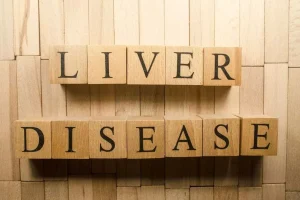
Your doctor will monitor your dosage and help wean you off of the medication when you’re ready. One of the most valuable things I did in early recovery was finding a community to support me and help me find my way. I’ve seen hundreds of people create beautiful, sober lives for themselves.
Alcohol Use Disorder, Alcohol Dependence & Alcoholism: What’s the Difference?
- But, it is important to know that treatment is not a cure but the first step to wellness.
- Clinically, Warren has developed a therapeutic skillset that utilizes a strengths-based perspective, Twelve Step philosophies, Cognitive Behavioral Therapy and Motivational Interviewing.
- Learn the truth about common myths surrounding addiction and recovery and find out how seeking help can lead to successful long-term recovery.
- If you enter our residential program, you can expect healthy meals, time to socialize with peers and comfortable surroundings designed to help you relax and focus on recovery.
It is time that we work on breaking the stigma of addiction and addiction recovery. One common myth surrounding addiction and recovery is the belief that recovery implies complete sobriety. Many people assume that individuals in recovery must abstain from all substances and never have a relapse. This misconception stems https://ecosoberhouse.com/ from a lack of understanding of the complex nature of addiction and the recovery process. To combat stigmas and misconceptions, it’s essential to promote understanding, compassion, and support for addiction and recovery. Educate others and spread accurate information to break down barriers stopping those seeking help.

Discover shocking heroin fast facts! Learn about effects, addiction signs, and treatment options in society.
Addiction is an illness, like any other, and deserves treatment, not punishment. Punishment won’t help; instead, we should give support and resources. Stereotypes about physical looks and addiction must be challenged. People with addiction need understanding and support, not judgment and punishment. Healthy lifestyle changes like regular exercise, nutritious food, enough sleep, and stress management are helpful for sobriety. Doing activities that make one happy and give life purpose can fill the void left by substance abuse.

Addiction Statistics: Understanding the Prevalence of Substance Use Disorder
Some supplement their primary drug of choice with whatever is readily available (e.g., using prescription opiates and heroin interchangeably). We publish material that is researched, cited, edited and reviewed by licensed medical professionals. The information we provide is not intended to be a substitute for professional medical advice, diagnosis or treatment. It should not be used in place of the advice of your physician or other qualified healthcare providers. It’s important to challenge the misconception that treatment is not effective.
The Role of Family Support in Outpatient Addiction Treatment
For example, doctors may prescribe methadone to help individuals with opioid use disorder. At Gateway Foundation, we prefer to use the term “medically supervised withdrawal.” “Detox” implies that once the substance you are addicted to leaves your body, all will be well. But the truth is, withdrawing from an addictive substance is only the myths about addiction and recovery first step in the process. By dispelling the myths about addiction, we can work together to create a world where individuals struggling with addiction can find hope, healing, and the opportunity to rebuild their lives. The belief that an individual can overcome addiction through sheer willpower alone is both simplistic and misguided.
- There are plenty of therapies and medicines that exist to help those struggling with addiction, but they aren’t where recovery ends.
- A common misconception surrounding addiction recovery is that relapse is a sign of treatment failure or a lack of commitment to sobriety.
- By debunking the myth that recovery only means complete sobriety, we can promote a more inclusive and compassionate understanding of addiction and recovery.
- Yes, medication-assisted treatment (MAT) can be an effective approach.
- To end these misconceptions, it is necessary to debunk common myths.
- Breaking the barriers is essential to give quality care and improve outcomes.
Master the art of staying sober on vacation with these essential tips for a memorable alcohol-free journey.
Myth 1: Addiction is a choice or moral failing
- While detox is an essential first step in the recovery process for many, it is by no means a comprehensive solution to addiction.
- Numerous factors contribute to the development of addiction, including genetic, environmental, and psychological factors.
- Factors like age, income, ethnicity, religion, family, and job can play a role.
- The medications used in rehab are FDA-approved for specific uses.
- The impacts of prescription drugs need to be known and dealt with.
Myth #2: I Don’t Need Treatment for Withdrawal Symptoms

Myth 9: Treatment isn’t necessary and people should just quit “cold turkey”
- Treatment must be affordable to provide support for those looking for recovery.
- Supervised withdrawal and medical assistance can help ensure a safer, more comfortable detoxification process and reduce the risk of relapse.
- Any effort to address the drug overdose crisis must include action to reduce stigma.
- When scientists began to study addictive behavior in the 1930s, people with an addiction were thought to be morally flawed and lacking in willpower.
- Many people believe that once an individual has successfully completed a treatment program, they are ‘cured’ and no longer have to worry about their addiction.
